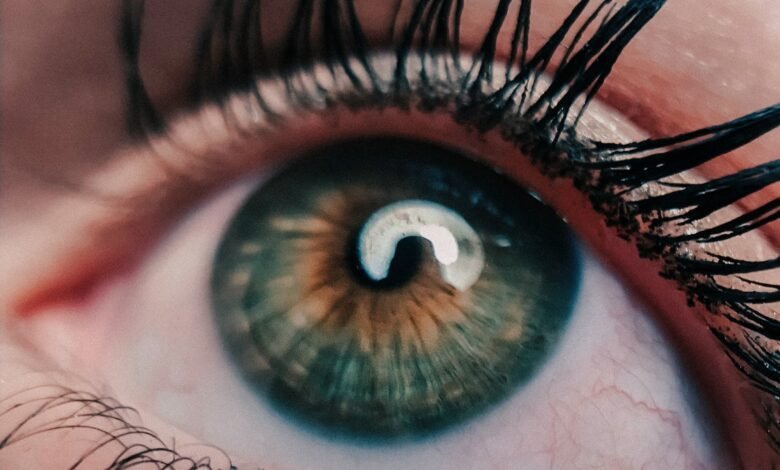Biopia: How Glasses Can Correct Farsightedness

Are you tired of squinting to read a book or struggling to focus on the fine print? Say goodbye to blurry vision and hello to crystal-clear sight with the stunning world of Biopia!
In this blog post, we’ll dive into the fascinating realm of glasses and how they can magically correct farsightedness. Get ready for an eye-opening journey through the wonders of Biopia, where clarity meets fashion.
So sit back, relax, and prepare to embark on a spectacle adventure like never before!
What is Biopia?
Most people are familiar with the common refractive error known as myopia, or nearsightedness. Myopia occurs when the eye grows too long from front to back, or when the cornea (the clear outer covering of the eye) becomes too steep.
This causes light to focus in front of the retina the light-sensitive tissue at the back of the eye instead of on it. As a result, distant objects appear blurred.
Biopia is a condition that is similar to myopia, but instead of nearsightedness, individuals with biopia are farsighted. Just as in myopia, this occurs when the eye is too long or when the cornea is too steep. This time, however, light focuses behind the retina instead of on it. This causes close objects to appear blurred while distant objects may be seen more clearly. Biopia affects people of all ages but is most common in children and young adults.
There are two main types of biopia: axial biopia and refractive biopia. Axial biopia occurs when the eyeball itself is too long from front to back. Refractive biopia occurs when there is an abnormal curve to the cornea or lens even if the eyeball itself is a normal size. In some cases, both axial and refractive biopathy can be present in one eye.
Biopia can usually be corrected with glasses or contact lenses which help to refocus
Causes of Biopia
There are two primary causes of farsightedness: either the eyeball is too short or the cornea has too little curvature. In either case, light focuses behind, rather than on, the retina when the eye is at rest. This is because the eyeball acts like a camera lens.
When you look at an object, your eye automatically adjusts its focus by changing the shape of your cornea. The cornea bends (flattens) when you look at a close object and becomes more curved when you gaze at a distant one.
If your eyeball is too short, light focuses in front of your retina, making distant objects appear blurred. If your cornea has too little curvature, it also focuses light in front of the retina. In either case, glasses or contact lenses can correct this problem by bending (refracting) the light that enters your eye so that it focuses directly on your retina.
Symptoms of Biopia
The most common symptom of biopia is difficulty seeing clearly at a distance. This can make it difficult to read street signs or see the television clearly. Other symptoms may include headaches, eyestrain, and fatigue. If you experience any of these symptoms, you should make an appointment with your eye doctor to discuss whether glasses or contact lenses may be right for you.
Correcting Biopia with Glasses
Wearing glasses is the most common way to correct biopic or farsightedness. This refractive error occurs when light entering the eye is not focused correctly on the retina, resulting in blurred vision. Glasses or contact lenses can help to correct this by bending the light so that it focuses properly on the retina.
Alternatives to Glasses for Treating Biopia
There are a few alternatives to glasses for treating biopia, including:
Contact lenses: Contact lenses can be used to correct farsightedness, and they have the added benefit of not requiring you to wear glasses. However, contact lenses can be difficult to keep clean and may cause eye irritation.
Laser surgery: Laser surgery can be used to correct farsightedness, and it is a permanent solution. However, laser surgery is expensive and has some risks associated with it.
Eye exercises: Eye exercises can help improve your vision and may be able to reduce your need for glasses. However, you will likely need to continue doing the exercises on a regular basis in order to maintain the benefits.
The Benefits and Risks of Wearing Glasses
There are both benefits and risks associated with wearing glasses. The most obvious benefit is that they can help improve your vision. This is especially true if you have farsightedness, as glasses can help you see things more clearly. Glasses can also help protect your eyes from the sun and other bright lights.
However, there are also some risks associated with wearing glasses. For example, if you wear them for too long, you may experience headaches or eyestrain. Additionally, if you don’t clean them properly, they can actually spread bacteria to your eyes, which can lead to infections.
The decision of whether or not to wear glasses is a personal one. If you do decide to wear them, be sure to take care of them properly and consult with your doctor to make sure they are the right prescription for you.
Tips for Buying the Right Pair of Glasses for Treating Biopia
There are a few things to keep in mind when shopping for glasses to treat biopia. First, it is important to get an eye exam from an optometrist or ophthalmologist to determine the right prescription. Second, try on a variety of frames to find the style that suits you best. Third, make sure the lenses are made of high-quality materials that will not scratch easily. Ask the optician for advice on which type of lens coating would be best for your needs.
Conclusion
In conclusion, biopia is a safe and effective way to correct farsightedness by making use of corrective lenses. It is important that you consult with an eye care professional before trying any type of vision correction option, such as glasses or contacts.
With the right glasses or contact lenses, your vision can be improved significantly and you will be able to enjoy all of life’s activities without worry. If you think that biopia might be an option for you, talk to your doctor today about how it can help improve your quality of life.




